[ad_1]
ALLEN, Texas — I couldn’t help but feel anxious as I drove deeper into rural northern Texas. The familiar coffee shops and apartment buildings of downtown Dallas faded into swaths of land with cattle and single-family homes surrounded by greenery in Allen. I would be spending the weekend in native Blackland Prairie grassland for Texas Survival School’s basic wilderness survival class.
My friends and family had mixed reactions when I told them I’d be with a bunch of strangers camping and learning to build a fire, navigate land, deliver “wilderness” first aid, learn water safety and more. Some thought it cool and exciting, others delivered a familiar axiom, “That’s white people stuff!”
So I wasn’t surprised that most of the two dozen participants — a mix of adults and children — were white. I was one of four Black people in the class, including three Black men, one of whom was an instructor. I was the only Black woman, and I caught curious glances from some of the other participants as I piled my box braids on top of my head to keep the bugs out of my hair.
The first night, we sat around a campfire and gave introductions. I was forthcoming about never having gone camping and spending most of my life in large cities. We learned about all the gear we were required to buy for the class: a tarp and paracord for shelter, a ferro rod to start fires, a full-tang knife, and several other items I hadn’t even heard of until I signed up. I spent most of the first night struggling to put up my tent — with help from YouTube — and asking myself, “What did I get myself into?”
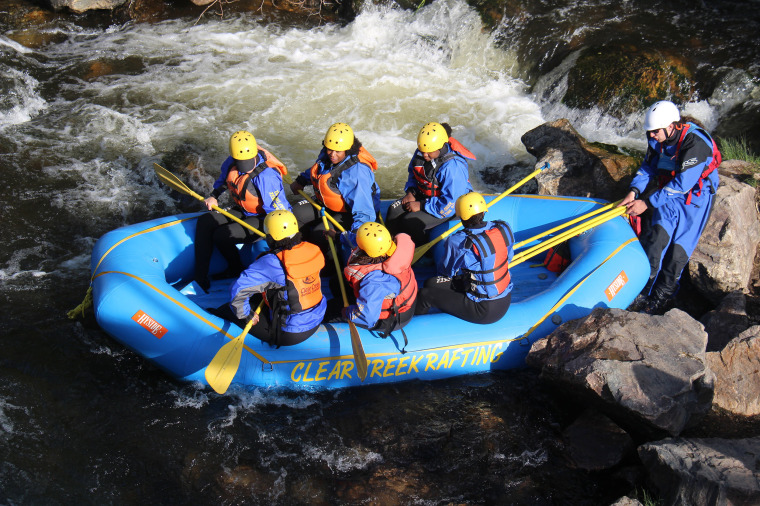
Taking this wilderness class seemed like a natural extension of my love of the outdoors, but my own isolation in the course made me wonder whether the old axiom was true to an extent. Was communing deeply with nature truly a “white thing?” I found that that couldn’t be further from the truth. Not only does Black culture boast a rich history with nature, Black people across the country are reclaiming the outdoors by forming their own communities of nature enthusiasts.
Groups like Vibe Tribe Adventures, Outdoorsy Black Women and the National Brotherhood of Skiers are just a few of the many organizations working to provide safe spaces for Black people to enjoy outdoor activities and dispel myths that the outdoors doesn’t belong to us. Many of these groups are holding hikes and other outdoors activities in honor of Juneteenth.
Vibe Tribe Adventures began as Black Girls Hike, the brainchild of Jessica Newton, 39, who developed a passion for the outdoors as a child attending a predominantly white private school. Some 1,200 Black women joined Black Girls Hike in the year after it launched in 2017, which Newton said was “jaw dropping.” She, too, had been indoctrinated into the belief that Black people don’t enjoy outdoor activities.
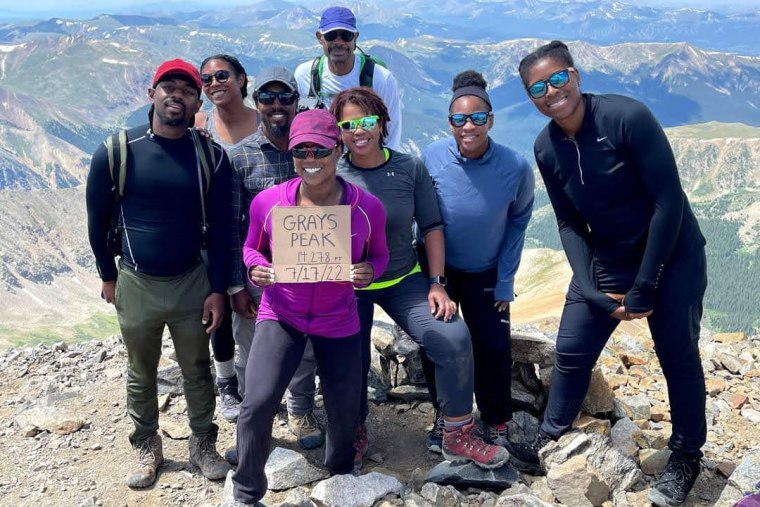
Today, Vibe Tribe Adventures provides events for Black people to engage in everything from camping and fishing to archery. Growth hasn’t been easy, though. Newton said police approached her hiking group once in Colorado after a group of white horseback riders complained about seeing a large group of Black women. One rider allegedly called the group a “mob.”
“Throughout history, we weren’t even allowed to go to national and state parks because of the color of our skin. There is trauma related to being outdoors,” Newton added. “There’s a lot of healing that we as a Black community must do in order to reconnect and deepen our relationship with the outdoors, because it’s our natural birthright to be there.”
Henri Rivers, president of the National Brotherhood of Skiers, agreed. He’s spent decades asserting that Black people belong in snow sports, beginning with his own racist encounters as a teen in New York — and being the only Black person on his high school’s ski team.
“They called me all sorts of things,” he said of the white skiers. “Jigaboo, jungle bunny, ask ‘What are you doing here?’ They probably said it initially to deter me from coming back, but it didn’t work.”
It’s no coincidence that Yellowstone, the first national park in the U.S., was established shortly after the Civil War. As industrialization and westward expansion continued, white elites supported the proliferation of national parks in response to urban expansion. In their eyes, cities were “dirty” and filled with people of color and immigrants, while “clean” natural spaces were best suited to white people, according to KangJae “Jerry” Lee, an assistant professor at North Carolina State University.
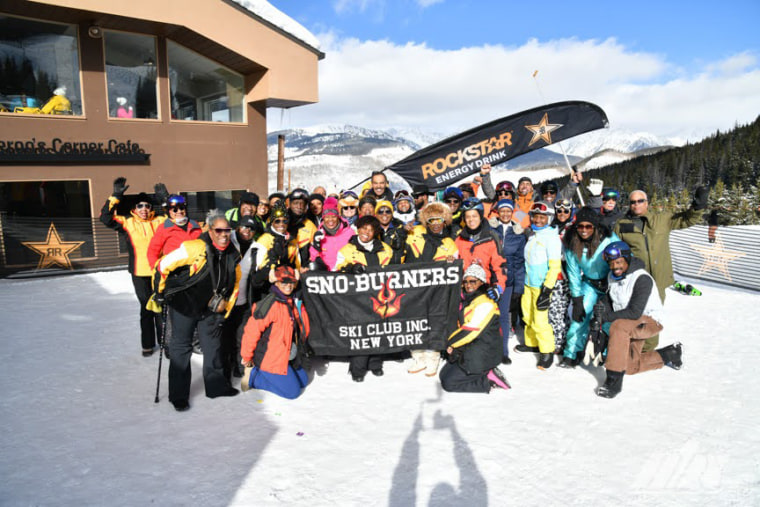
Black people commonly saw “For Whites Only” signs in national parks during the Jim Crow era. Even after national parks were officially desegregated in 1945, several parks resisted these changes. Shenandoah National Park in Virginia, which had a “negro area” and barred Black people from other parts of park, remained segregated until 1950.
Black people made up just 6% of visitors to the country’s 424 national parks in 2018, according to the most recent data from the National Park Service.
“The relationship between human beings and nonhuman nature has been shaped by white people. So why wouldn’t you think it must be a ‘white’ thing to do?” said Carolyn Finney, an environmentalist and author of “Black Faces, White Spaces: Reimagining the Relationship of African Americans to the Great Outdoors.” “The environmental narrative, the manifest destiny, the creation of the national parks — that story isn’t untrue, it’s just highly incomplete. When a lot of those things were happening there was slavery, Jim Crow segregation, Indigenous Americans were killed and removed from these places in order for these spaces to be created.”
I did not know this history before signing up for the wilderness course, but I was well aware of the racial dynamics that colored my presence in the class. As my wilderness class learned to tie basic knots — like slip knots, hang knots and the trucker’s hitch — it became clear that other participants were curious about my presence.
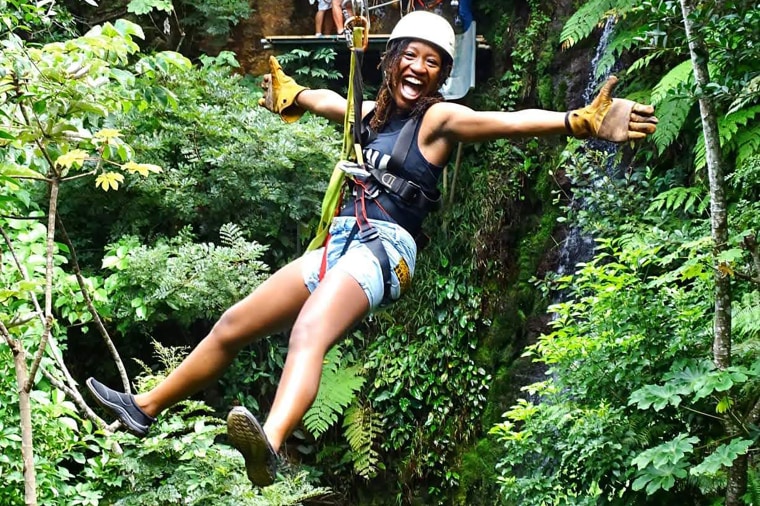
A little boy asked where I was from and if I needed help with my knots (I didn’t), and an older man told me, “I’m glad you’re here. We need more of this!” We both knew what he meant. Throughout the experience, though, I kept thinking about how fun it would be to have other Black women in the course with me, or a similar course tailored to Black women.
This sense of community is common when it comes to Black outdoors enthusiasts. Toyin Ajayi launched Outdoorsy Black Women in 2021 in Atlanta because she was looking “for a space for Black women like me.” Ajayi, who lives in an RV, has loved being out in nature since she was a child, frequenting butterfly gardens and flower fields. Ajayi said the start of the Covid-19 pandemic, the 2020 election and the Jan. 6, 2021, Capitol riot all bolstered conversations about safe spaces for Black people.
“There were a lot of Black people looking for safe spaces to go camping and just experience the outdoors. People would go to campgrounds, and there would be Trump flags flying everywhere,”Ajayi said, citing the many mental health benefits of being outdoors, like alleviating depression and stress. People around her wanted to know where they could safely go camping without being harassed or discriminated against. “I wanted to build a safe space for that. I figured if I needed a space like that, there were other Black women who probably needed that space too.”
That’s what Ajayi did. Today, the Outdoorsy Black Women social network has 15 chapters across the country, a book club and even a coloring book. Black women meet to go on hikes together and participate in camping events like the organization’s annual Wine and Waterfalls retreat, where dozens of women join each year to camp and bond through everything from hikes to yoga sessions. The group even sat down for a fireside chat with Finney, learning about the history of Black people’s exclusion from the outdoors.
“Many of these groups were created in response to a larger environmental narrative in this country that excluded the experience of nonwhite people in general and African Americans in particular,” Finney said. “People form these groups because they want to feel safe or more able to take the risk of being outside and try something I’ve never done before.”
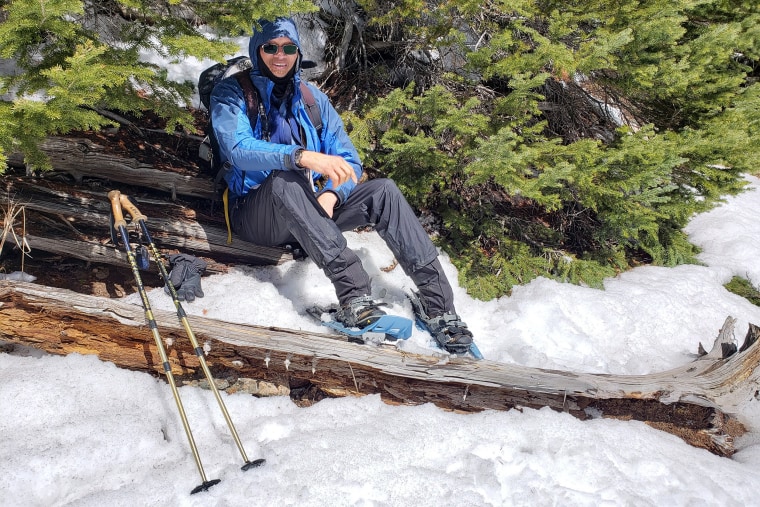
Enjoying the outdoors safely can be hard work. Instructors at Texas Survival School spent hours teaching us all to properly boil and filter water for drinking, tend to bleeding wounds and avoid deadly creatures like poisonous snakes and spiders. We often worked in pairs, and I found a weekend partner in one of the Black men in the group. We did not acknowledge our Blackness, or why we gravitated toward each other. But I sensed a measure of safety between us as we worked together. Although I would have loved to see more Black women in the class, I was delighted to see Black men’s faces and found, in them a level of camaraderie.
The National Brotherhood of Skiers, founded in 1974, had been a safe haven for Black snow- sports enthusiasts for decades before Rivers joined in 1996. Today, thousands of skiers make up its more than 50 clubs across the country. For Rivers, now the president of the organization, his first NBS summit all those years ago challenged his own indoctrinated beliefs about skiing.
He went to the event thinking, “‘Oh, Black people don’t ski that well,’” he recalled. “I got there and half of them skied really well! So 1996 was my awakening,” Rivers said.
This experience stayed with Rivers as he joined NBS in his 20s and ultimately became its president. The NBS holds outreach programs, and uses grants and funding from other organizations to provide gear, lessons and equipment for Black athletes.
“Our goal is to make them lifelong snow-sport enthusiasts,” he said. “There is a push to identify and get children out there and exposed to winter sports. I look at ski resorts the same way I look at golf resorts or country clubs. They were built and designed for the white population that has privilege. We want to break that down.”
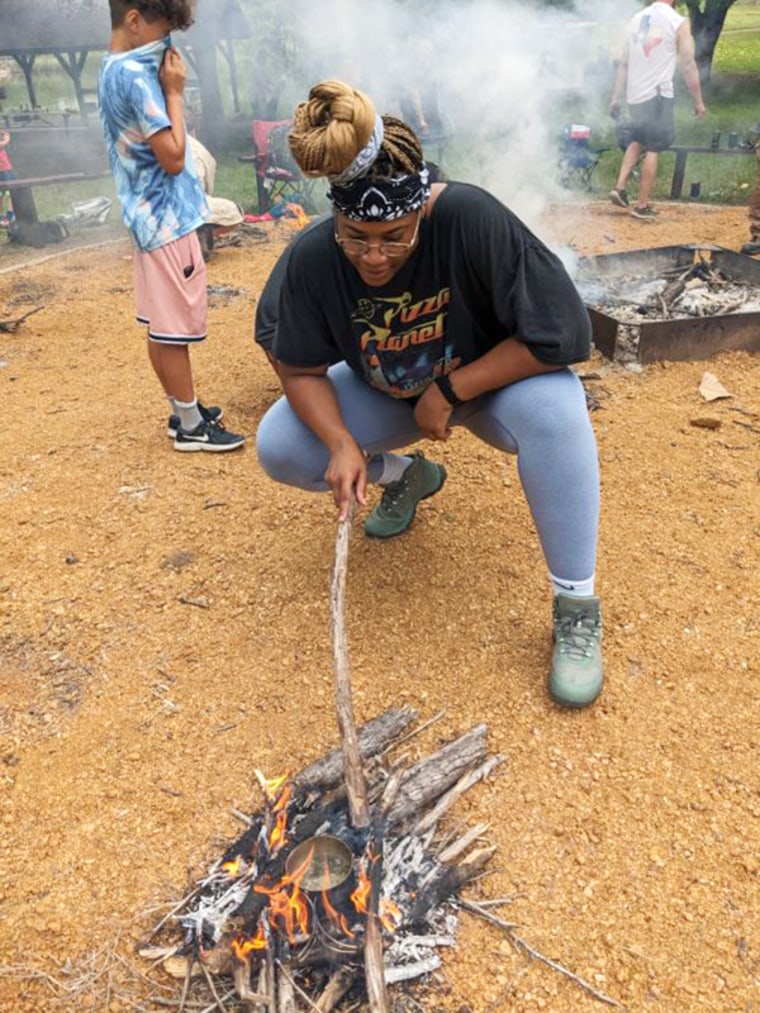
I finished the wilderness course with a few small leaves in my box braids, the scent of bug spray on all my belongings, and most important, a wealth of new knowledge and skills. As I drove away from the grassland and into Dallas’ city center, I longed to share this knowledge and experience with other Black women. Like Newton, Ajayi and Rivers, I learned that if I found so much joy and fulfillment in the outdoors, surely this experience was meant for me and those who look like me. Perhaps it’s time for a new axiom about the great outdoors: “It’s Black people stuff!”
[ad_2]
Source link
